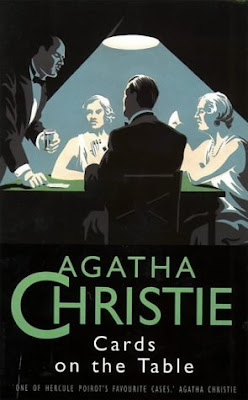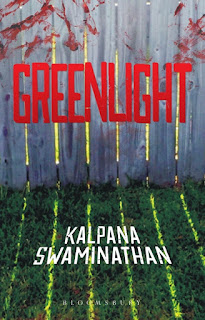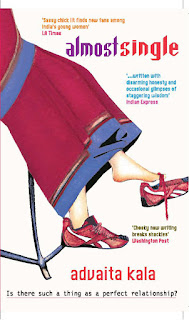Some waits to be an author while some just take the deep plunge. Writer Maniissh Arora belongs to the second category. His first story titled ‘Purple Diary’ was published in a well-known transnational journal - Illuminati, a few months ago. His debut fiction ‘Sunshine Town’ is all scheduled for a launch on November 2017
Let's hear from him how he tackled the arduous journey of being a writer and also about his new book – Sunshine Town.
Tell us a bit about yourself?
I was born and brought up in a traditional Punjabi family, in Allahabad, a city located at the confluence (Sangam) of three rivers - Ganga, Yamuna and Saraswati. Dad worked for state government and Mom was a home-maker. Soon after graduating from Allahabad University, I moved to Indore to pursue management studies.
In 2002, I began my corporate journey from Mumbai and since last fifteen years, I have had the opportunity to work with some of the finest global organizations. At present, I manage a leadership role with a well-respected Software organization.
Though, I inculcated reading habit quite late in life, I am now an avid reader. I love reading both fiction and non-fiction. My favorite authors are Dale Carnegie, Julia Cameron, Steven Pressfield, Robin Sharma, Louis Sachar, Agatha Christie and Stephen King.
Having been born and raised in North of India, I have a special interest in the people and culture of the region and my writing reflects the same.
Tell us about your short story - Purple Diary?
Purple Diary is a story of Shira - a young, plump, short and dusky girl. She aspires to be an Airhostess. The narrator in the story is a ward-boy, working in a government hospital, who accidentally finds Shira’s diary in the hospital. He is faced with a dilemma, to open and find out the rightful owner or not to venture into someone’s personal matter without permission. The purple colour is not just the colour of Shira’s diary, it also represents the presence of divinity and spirituality in Shira’s life.
What persuaded you to make it as the theme?
I wrote Purple Diary when I was in the middle of writing my second book. And in both the books, though female characters play critical roles, the protagonist is a male character.
For a very long time, I have been nurturing this thought of writing a book with a female character playing the central protagonist. I always wanted to explore female psyche in great depth, to understand how a girl would look at this world and react to various circumstances around her. Purple Diary gave me that opportunity, albeit, briefly. I have plans to write a book in future.
If I am not wrong, you are working on your two fiction projects besides your book called Sunshine Town which is going to be launched on November.
Yes, that is true. My debut fiction novel ‘Sunshine Town’ is scheduled for a launch in November 2017. Besides, I am working on two fiction projects, exploring family bonding a little further in them. Unlike Sunshine Town, which is written for teenagers and young adults, the other two projects would cater to mature audience who are dense readers.
What is ' Sunshine Town' all about?
Sunshine Town is about Shlok, a lanky teenager, a serial day dreamer. He doesn’t want much from his life. A dream to make his parents happy and the affection of a neighborhood sweetheart, Natasha. Though, both are poles apart, their interest in nature and jogging bring them close in a bond. The rapids of life push Shlok and Natasha on an unexpected journey and they realize one can’t always be in control of circumstances.
Set in Varanasi, a city in North India, during the late 90s, before the pervasiveness of technology, the book is about the aspirations and emotional turmoil of being a teenager. This story deals with the themes of love, career and personal fulfilment.
Which are the other two fiction projects you are working on?
My second novel is about three characters and a train journey. It has a corporate scavenger who is struggling to save his Job in office, a monk who is a mind reader and a girl who is crazy about books and reading. All three of them are on the same train. The book is somewhere between fiction and non-fiction, focused on bringing meaning to life. The expected launch would be 2018 mid.
My third novel is still work in progress, I plan to finish it by mid of 2018. It is about a half-burnt book that plays God in the life of a protagonist - a teen who has lost his elder brother and is unable to cope with the loss.
Tell us about your struggle to get your first break? I mean how you approached the publishers and what was their response?
While writing my first book, I did extensive research on the publishing industry and its nuances. I observed three clear patterns - (a) Script must be of high quality and unless it goes through developmental or substantial editing phase, it would be hard for it to fly off the ground, this is applicable for budding authors since the quality of writing improves with time and with a lot of writing. (b) Irrespective of marketing and hype, if the story is good, the book will slowly pick up and do well and (c) Creativity is subjective in nature and one should be relentless in applying to publishers and literary agents across the globe, without giving up.
I applied to 100+ publishers and literary agents across the globe and after a year full of rejection letters, I finally got a break. It was also interesting that a few literary agents in the UK liked the book, but they were pretty tight in their publishing schedule hence they had put my script on hold and asked me to wait.
Lastly, I also must acknowledge the role of my mentor, who played a crucial role in guiding me on every step in my journey from writing to publishing.
You are working in a corporate sector. When did you feel that you also have a story to tell?
I think we all have a creative child inside us longing for coddling and nurturing. It doesn’t matter which profession we are in, we all are creative in some way or the other. The important thing is to nurture our child so that it matures with time. We all have stories in the form of experiences and imaginations, it has to be expressed.
Writing happened to me by some sort of accident and it was a book that gave me the courage and inspiration to embark on this journey. It is my way of unwinding from the cascades of life. I enjoy it.
All your themes are very different from each other and to come up with such threads is not an easy task. How do you do that?
For me, it has always been a combination of my own experiences and the kind of books I have read and continue to read. In these years of writing, I have realized that I am an intuitive writer and more than anything else, spending time with a self-plays fulcrum and helps in firming up the thoughts into stories.
by Shalet Jimmy

































